This mathematics ClipArt gallery offers 100 illustrations of solutions to the tangram solid puzzles.

Rabbit Siting on Its Hind Legs
Tangrams, invented by the Chinese, are used to develop geometric thinking and spatial sense. Seven figures…
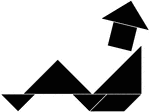
Reclining Man Facing Left
Tangrams, invented by the Chinese, are used to develop geometric thinking and spatial sense. Seven figures…
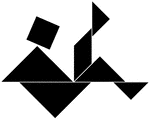
Reclining Man Facing Right
Tangrams, invented by the Chinese, are used to develop geometric thinking and spatial sense. Seven figures…

Rectangle
Tangrams, invented by the Chinese, are used to develop geometric thinking and spatial sense. Seven figures…

Rhombus
Tangrams, invented by the Chinese, are used to develop geometric thinking and spatial sense. Seven figures…

Right Triangle
Tangrams, invented by the Chinese, are used to develop geometric thinking and spatial sense. Seven figures…
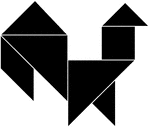
Rooster
Tangrams, invented by the Chinese, are used to develop geometric thinking and spatial sense. Seven figures…

Runner
Tangrams, invented by the Chinese, are used to develop geometric thinking and spatial sense. Seven figures…
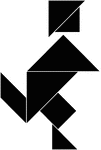
Runner
Tangrams, invented by the Chinese, are used to develop geometric thinking and spatial sense. Seven figures…

Runner
Tangrams, invented by the Chinese, are used to develop geometric thinking and spatial sense. Seven figures…
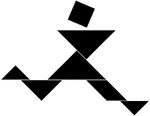
Runner
Tangrams, invented by the Chinese, are used to develop geometric thinking and spatial sense. Seven figures…
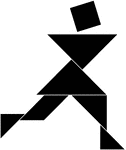
Runner
Tangrams, invented by the Chinese, are used to develop geometric thinking and spatial sense. Seven figures…
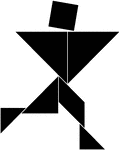
Runner
Tangrams, invented by the Chinese, are used to develop geometric thinking and spatial sense. Seven figures…
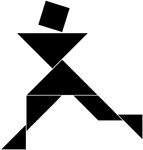
Runner
Tangrams, invented by the Chinese, are used to develop geometric thinking and spatial sense. Seven figures…
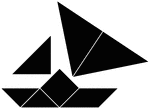
Sailboat
Tangrams, invented by the Chinese, are used to develop geometric thinking and spatial sense. Seven figures…

Saint
Tangrams, invented by the Chinese, are used to develop geometric thinking and spatial sense. Seven figures…

Saw Blade
Tangrams, invented by the Chinese, are used to develop geometric thinking and spatial sense. Seven figures…

Sea Monster
Tangrams, invented by the Chinese, are used to develop geometric thinking and spatial sense. Seven figures…
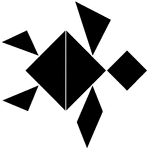
Sea Turtle
Tangrams, invented by the Chinese, are used to develop geometric thinking and spatial sense. Seven figures…

Seagull
Tangrams, invented by the Chinese, are used to develop geometric thinking and spatial sense. Seven figures…

Shark
Tangrams, invented by the Chinese, are used to develop geometric thinking and spatial sense. Seven figures…

Ship
Tangrams, invented by the Chinese, are used to develop geometric thinking and spatial sense. Seven figures…
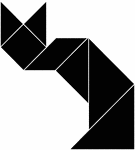
Sitting Cat
Tangrams, invented by the Chinese, are used to develop geometric thinking and spatial sense. Seven figures…
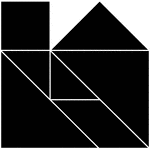
Small House
Tangrams, invented by the Chinese, are used to develop geometric thinking and spatial sense. Seven figures…
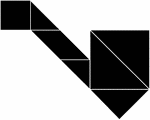
Smoking Pipe
Tangrams, invented by the Chinese, are used to develop geometric thinking and spatial sense. Seven figures…

St. Petersburg Pier
Tangrams, invented by the Chinese, are used to develop geometric thinking and spatial sense. Seven figures…
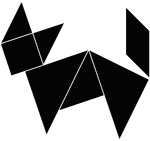
Standing Fox
Tangrams, invented by the Chinese, are used to develop geometric thinking and spatial sense. Seven figures…
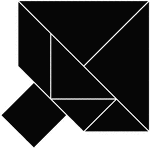
Stingray
Tangrams, invented by the Chinese, are used to develop geometric thinking and spatial sense. Seven figures…
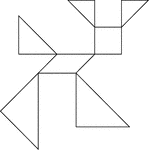
Stylized Rabbit
Tangrams, invented by the Chinese, are used to develop geometric thinking and spatial sense. Seven figures…
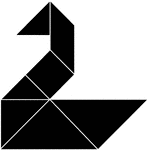
Swan
Tangrams, invented by the Chinese, are used to develop geometric thinking and spatial sense. Seven figures…

Swimmer
Tangrams, invented by the Chinese, are used to develop geometric thinking and spatial sense. Seven figures…
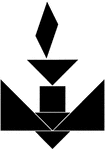
Torch
Tangrams, invented by the Chinese, are used to develop geometric thinking and spatial sense. Seven figures…
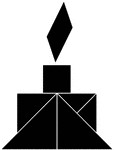
Torch
Tangrams, invented by the Chinese, are used to develop geometric thinking and spatial sense. Seven figures…
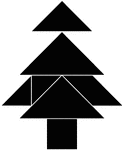
Tree
Tangrams, invented by the Chinese, are used to develop geometric thinking and spatial sense. Seven figures…

Triangular Double Arch
Tangrams, invented by the Chinese, are used to develop geometric thinking and spatial sense. Seven figures…

Vulture
Tangrams, invented by the Chinese, are used to develop geometric thinking and spatial sense. Seven figures…

Water Skier
Tangrams, invented by the Chinese, are used to develop geometric thinking and spatial sense. Seven figures…
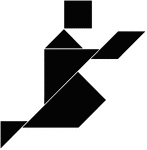
Woman Kneeling
Tangrams, invented by the Chinese, are used to develop geometric thinking and spatial sense. Seven figures…
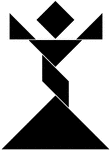
Woman Standing
Tangrams, invented by the Chinese, are used to develop geometric thinking and spatial sense. Seven figures…
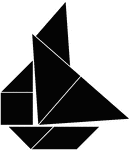
Yacht
Tangrams, invented by the Chinese, are used to develop geometric thinking and spatial sense. Seven figures…